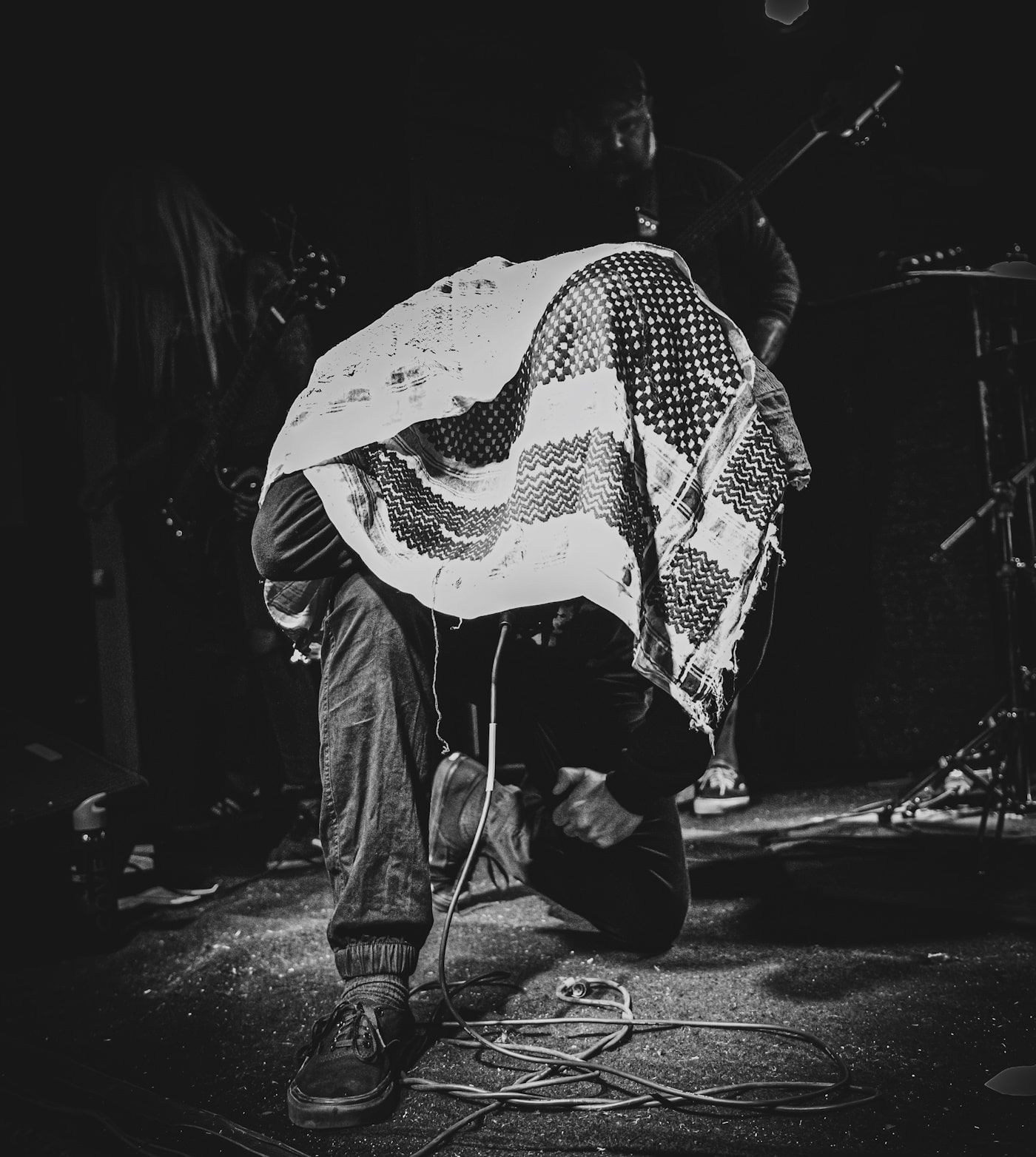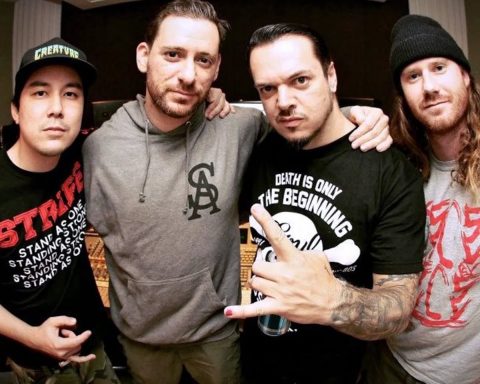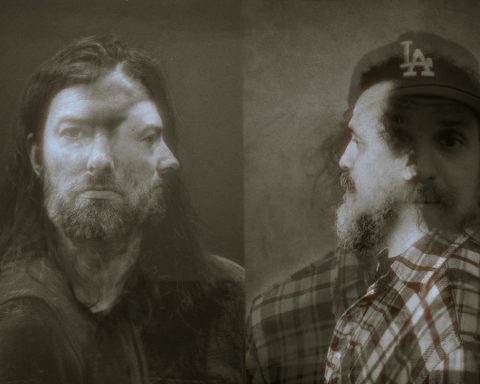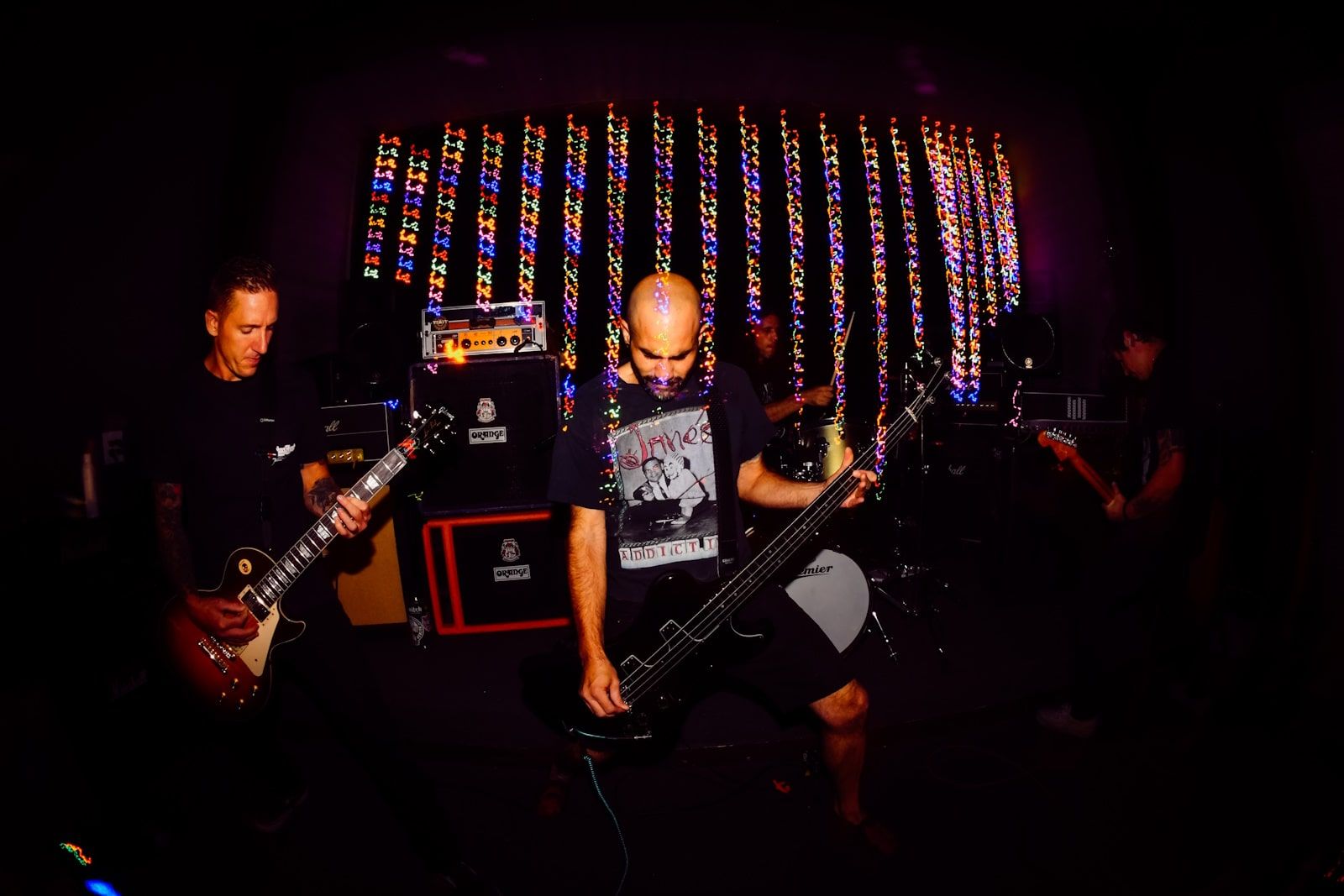Born from the spirited streets of Chicago, Illinois, Racetraitor was never just another name in the hardcore punk scene. Throughout the late 1990s, the band became a veritable voice of dissent. Through their radical stand on racial politics, addressing systemic racism and white privilege long before it became the zeitgeist, the band polarized opinions – they were revered by many and reviled by others.
Racetraitor embarked on a prolific journey with their groundbreaking 1998 album Burn the Idol of the White Messiah, soon followed by a split EP with Burn It Down titled Make Them Talk in 1999. However, like many bands caught in the whirlwind of controversy and identity, they disbanded.
Yet, the socio-political tempest of 2016 provided the impetus for a reunion, a rekindling of their fire, albeit without the intent of long-term reformation.
However, six years on, the band hasn’t lost its essence. They’ve deftly managed to navigate the tumultuous waters of the Trump era, delivering two EPs and the 2018 magnum opus, 2042. More than just a progression in their sound, their recent work mirrors their off-stage pursuits spanning social work, anti-violence, and human rights. The band of today retains the fervor of their earlier days but seasons it with maturity, experience, and nuanced knowledge.
As Racetraitor gears up for their upcoming record, they’ve dropped a tantalizing teaser: Eid. Initially, the track feels like a misstep, a Spotify algorithmic blunder, seeming more an exotic melody from the Middle East than a hardcore punk anthem. But just past the 1-minute mark, the tune erupts in a sonic frenzy typical of Racetraitor, only to slip back into meditative prayerful chants, setting the stage for another impending explosion.
The sorrowful, weighty double bass adds gravitas, leading into a chilling soundscape portraying societal decay and destruction. It’s a stark commentary, possibly targeting the societal fragmentation the band discerns today. The track ends, leaving an echoing resonance, both musically and ideologically.
The first single, “Eid,” takes the listener to Iran. With singer Mani Mostofi and guitarist Dan Binaei both being the children of Iranian immigrants, “Eid” represents the band digging into their family stories after the 1979 Revolution.

The track stretches the band’s sound by blending their trademark metallic fury with heavy Persian classical music, contributed by renowned Persian classical musician, Fared Shafinury, as well as a guest feature from UK-Iranian vocalist, Patrick Hassan (xRepentancex). Making the video for “Eid” was a risky experience, as the cinematographer shot footage within public spaces of Iran, an act that could be criminalized in the country.
The world may have changed since their inception, but Racetraitor’s message remains ever relevant.
Creation and the Timeless Order of Things is set for release November 17th through Good Fight Music.
First formed in 1996, the band – Mani Mostofi (vocals), Dan Binaei (guitar), Andrea Black (guitar and backing vocals), R. Brent Decker (bass) and Andrew Hurley (drums) – continue to be at the forefront of experimental hardcore, as sonically and politically charged as ever. The 13 songs on Creation and the Timeless Order of Things focus on fighting for liberation from the oppressive systems that destroy humanity and the earth, while creating a geographic autobiography of Racetraitor.
In fact, with societal polarization and open fascism on the rise, the band’s voice might be more pertinent now than ever before.
It’s not just about their music; it’s about their unwavering stand against injustice, their refusal to be silenced, and their commitment to being a beacon in times of political obscurity.
With the album originally set to be completed in 2020, as the for-profit medical infrastructure failed to protect the populations of earth, the band like many others, didn’t finish the record as planned. Instead, this inspired Racetraitor to look at what they wanted to achieve sonically in a new light, creating a sound that is heavier, more psychedelic, and more worldly all at once.
The band also took this time to have friends record additional vocals on the album, including contributions from Dennis Lyxzen (Refused), Tim Kinsella (Joan of Arc, Cap’n Jazz), Stan Liszewaki (Terminal Nation), and Sanket Lama (Chepang) to name a few, plus Ethan Lee McCarthy (Primitive Man) contributing a noise track.

The record addresses specific places, events, visions, and people, that all tie to the band members histories.
As Mani expands: “In the past people seemed more interested in our story as a band than the themes we sing about. So I tried to create an album that bridges that. What have we seen and experienced that makes us the people and band we are. Places that our families are from, places that we have lived or worked. And through these geographies we address all sorts of socio-political issues from exploitation of migrant workers to domestic violence to indigenous rights. The end result is a much more personal record.”
Creation and the Timeless Order of Things was written and produced by Racetraitor. Recorded at Electrical Audio by Greg Norman, Paint by Numbers by Stuart Sikes, and VoidDawn by Dan Binaei. Mixed by Greg Norman at Studio Greg Studios. Mastered at Audiosiege by Brad Boatright.












